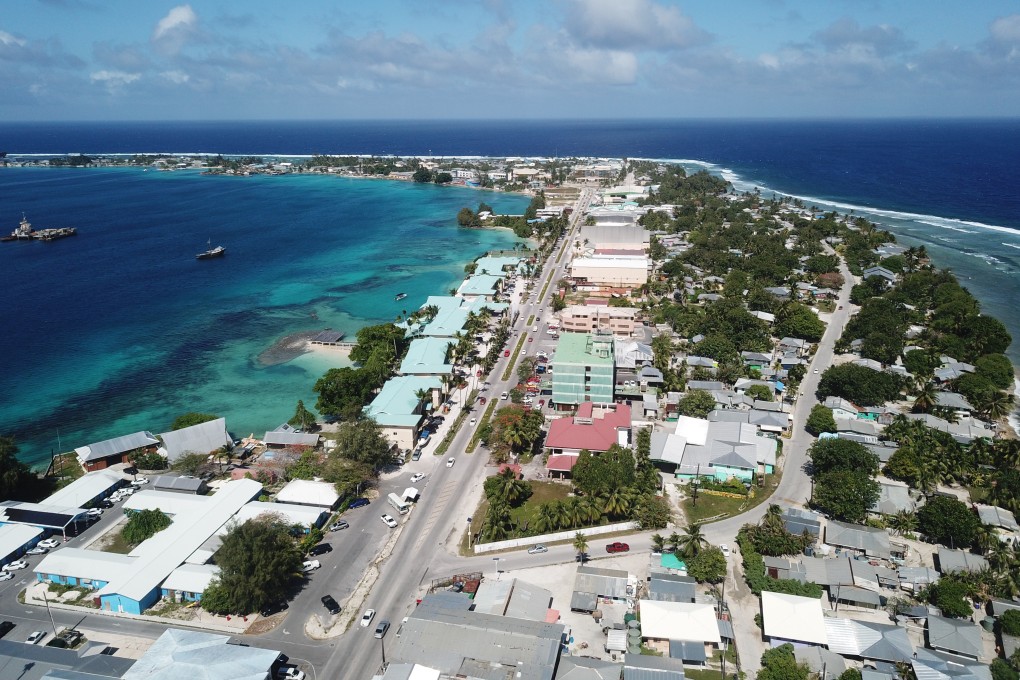China’s ambitions for North Pacific islands a ‘concern’ for key US military buffer: report
- Report by US think tank says Beijing’s influence in the region could ‘imperil US military capabilities’ in a strategically vital area
- US advised to boost support for island states ahead of a meeting between President Joe Biden and Pacific island leaders next week

China has made progress on geostrategic goals in the Pacific that it has not been able to achieve elsewhere, according to the report for the United States Institute of Peace, whose co-authors include former senior military officials.
This was cause for concern but not alarm, the report added, saying the US should bolster support for island states in the North Pacific where it had the strongest historical ties.
The Marshall Islands, the Federated States of Micronesia and Palau are sovereign nations known as Freely Associated States (FAS), after signing defence compacts in the late 1980s that give the US defence responsibilities and the right to military bases.
The compacts, which expire in 2023 and 2024, are being renegotiated, and the report warned that these states could look to China for funding if negotiations fail.
